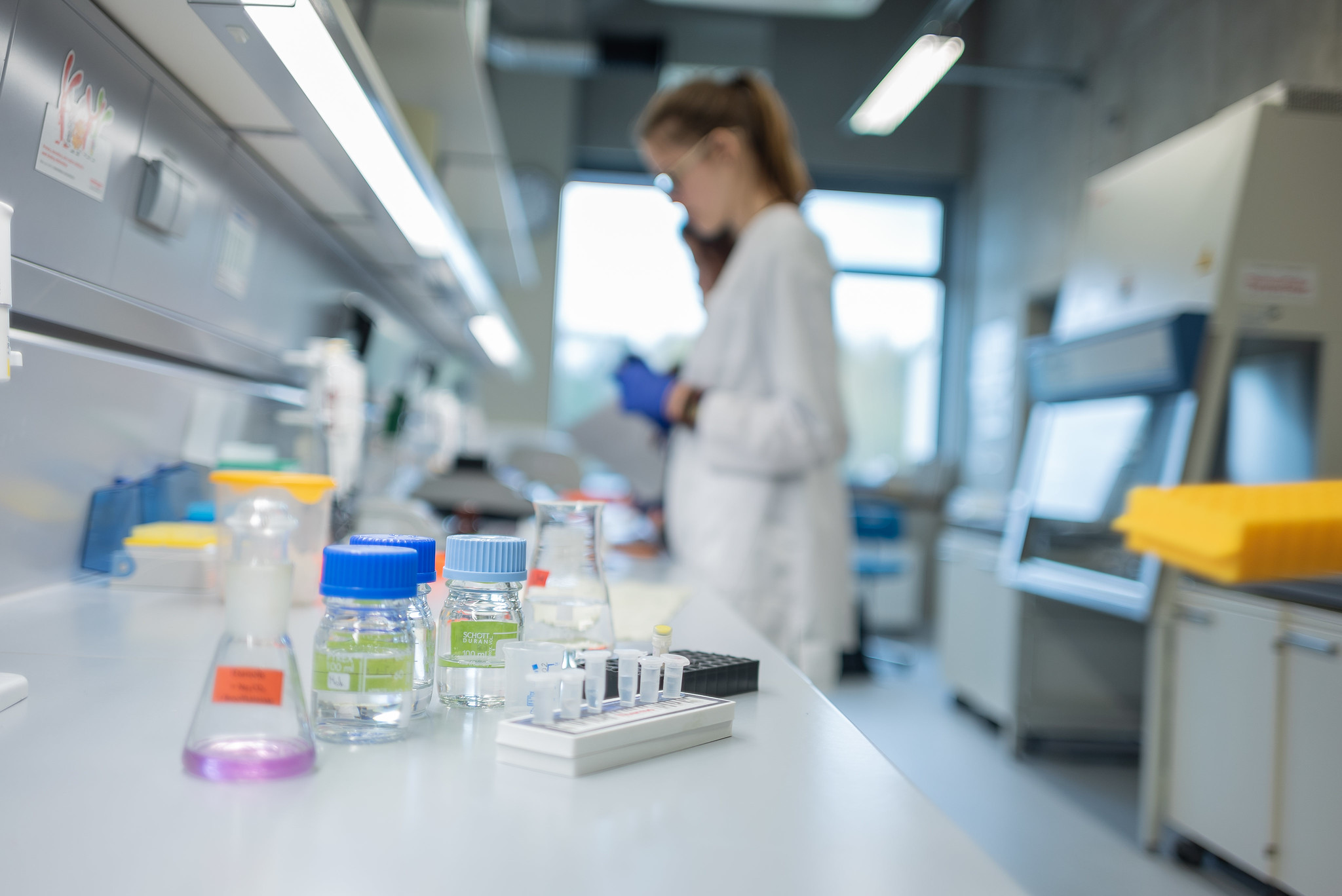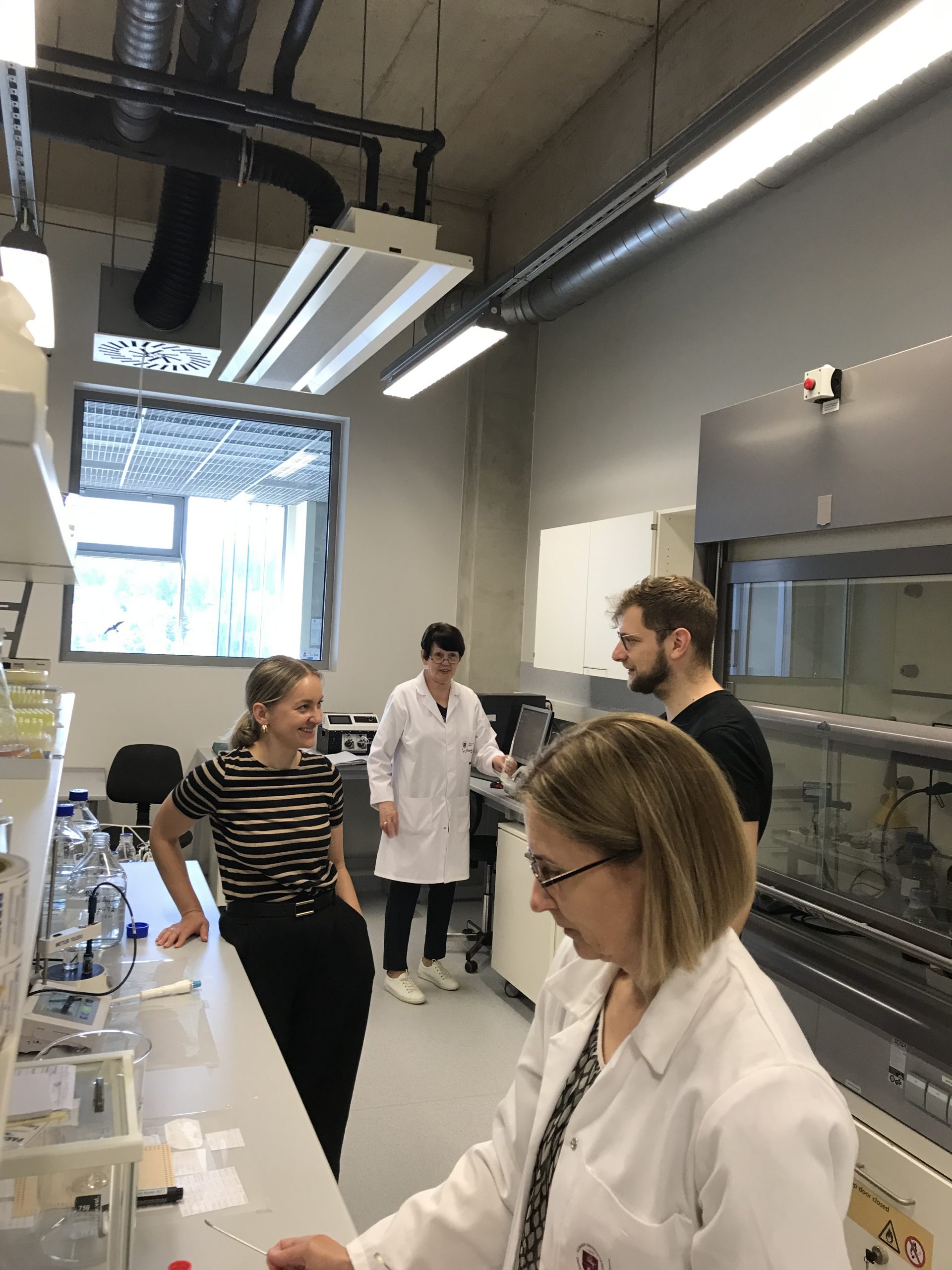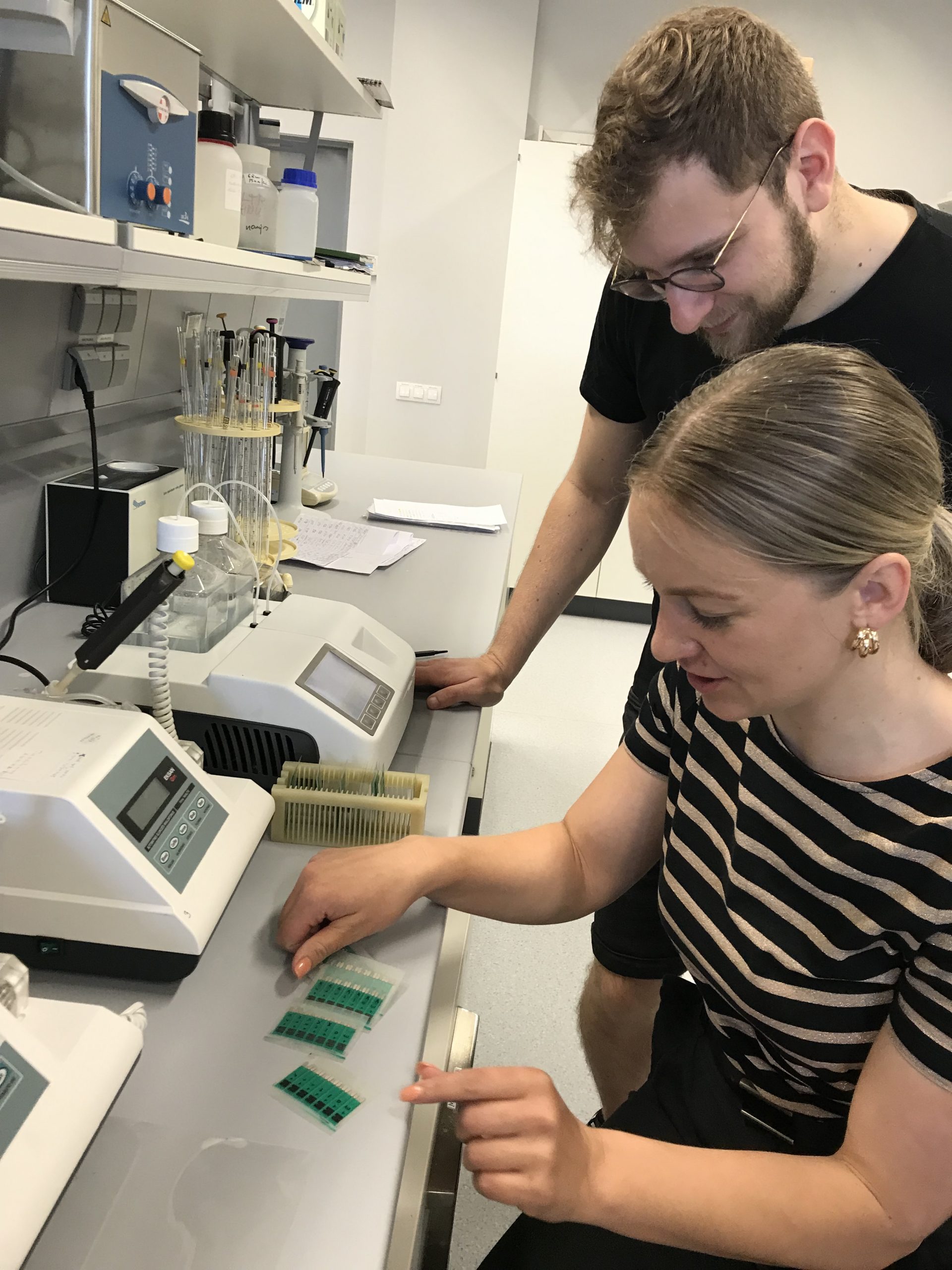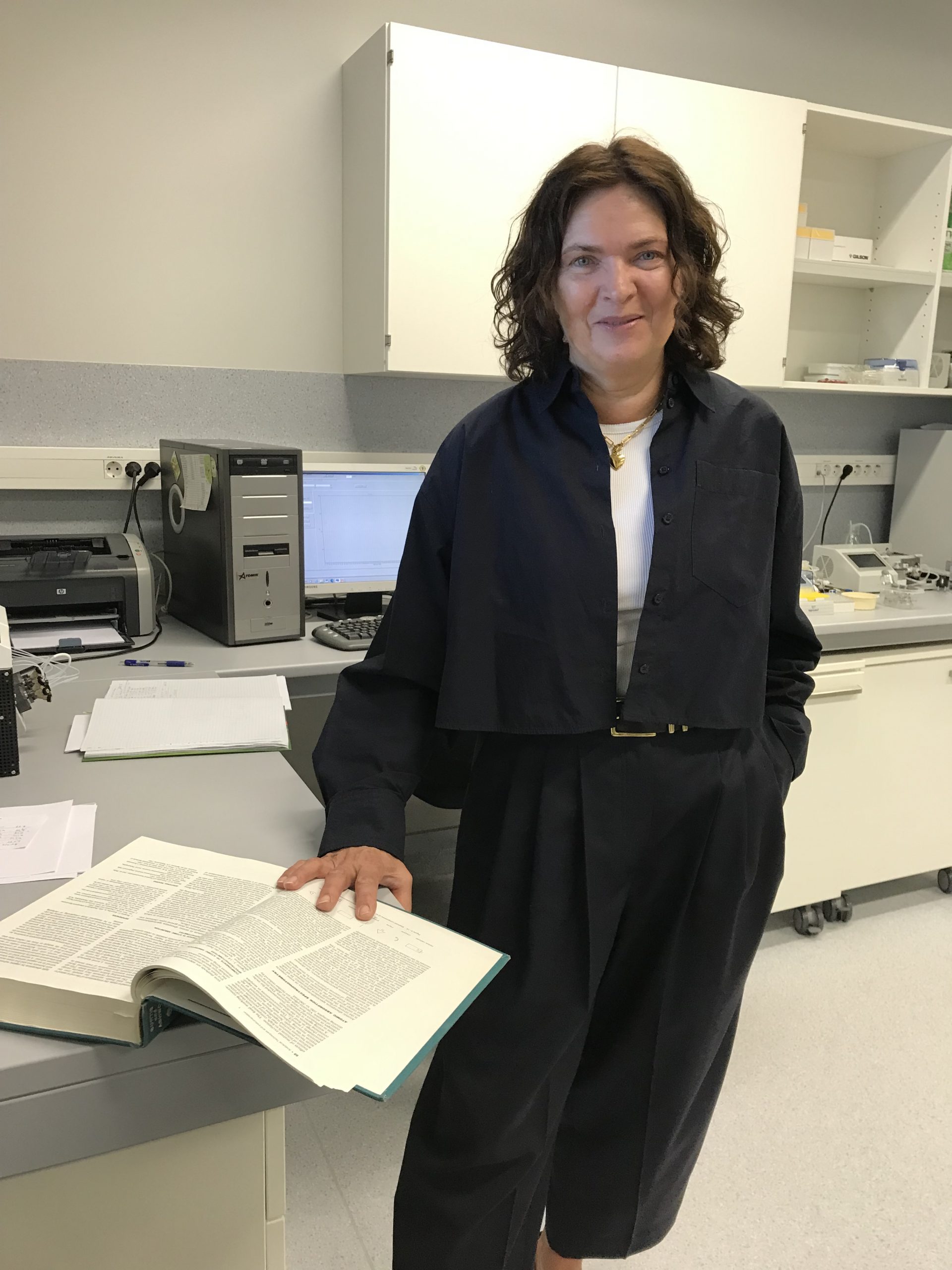Dr Julija Razumienė: About Inflammatory Processes and Cooperation with Ukrainian Researchers
 Associative photo
Associative photo
“Today, Ukrainian researchers are forced to continue their work in unimaginable conditions: some at subway stops, some virtually, or in other possible ways. Ukraine is an ambitious country,” says Dr Julija Razumienė, a Vilnius University Life Sciences Center (VU LSC) biochemist.
The researcher has been working with Ukrainian scientists for a long time, but the Russian war has encouraged a strong desire to help scientists implement their ideas “here and now.”
In our conversation with Dr. J. Razumienė, we discussed one of her current scientific focuses: inflammatory processes, and we discussed how researchers can support Ukraine’s scientific community.
What is the difference between acute and chronic inflammatory processes?
You noticed correctly that inflammatory processes in the body are primarily divided into acute and chronic ones. Acute inflammation usually ends when the wound or source of infection is healed.
On the other hand, chronic inflammation is a significant problem that causes various diseases and weakens the immune system. Chronic inflammatory processes increase susceptibility to infectious diseases and cancer, as well as the risk of diabetes, Alzheimer’s, and cardiovascular diseases. Inflammation can also be associated with autoimmune diseases.
Why is it important to identify inflammatory processes as early as possible?
Early detection of inflammatory processes is vital for timely treatment, predicting the outcome of the disease, and creating effective anti-inflammatory treatment.
First, analytical tests are necessary to quickly distinguish inflammatory diseases from noninflammatory ones, such as rheumatic diseases. Second, early identification of critical conditions such as sepsis allows rapid initiation of appropriate treatment, resulting in lower mortality and less severe long-term sequelae.
Many advertisements now offer an anti-inflammatory diet or even supplements. How do you rate them?
In my opinion, intestinal microflora is essential for the body’s general condition. Therefore, all the supplements intended for the necessary microflora reproduction and high-fiber food will always be beneficial if used wisely.
However, it should be noted that this is simply a way of leading a healthy lifestyle. Alternatively, such supplements can benefit recovery after a severe treatment or during the postoperative period. Unfortunately, they will not be sufficient to treat a serious, long-lasting inflammatory process.
I’d also like to assure you that everyone is a unique organism. Currently, no methods can determine with great precision what combinations and quantity ratios of microorganisms are needed for one’s body, so we should not unquestioningly trust advertisements that offer the best options. I would advise you to listen to your body’s reaction after using one or another supplement.
 Nijolė Baliuckenė, Marius Butkevičius, Dr Ieva Šakinytė-Urbikienė and Vidutė Gurevičienė
Nijolė Baliuckenė, Marius Butkevičius, Dr Ieva Šakinytė-Urbikienė and Vidutė Gurevičienė
You were allocated funding to implement the Lithuanian-Ukrainian project “Biosensors of esterase activity for early diagnosis of inflammatory processes.” What is the importance of this project? What is your goal?
Undoubtedly, inflammatory processes directly affect our daily health, so the importance of early diagnosis of these processes can’t be overestimated.
Currently, tests for detecting inflammation are not very specific. For example, inflammation often increases blood levels of C-reactive protein (CRP) produced by the liver. Increased level of cholesterol is also associated with inflammatory processes but are improper for early diagnosis. It is possible to test inflammatory cytokines - IL-1, IL-6, IL-17, and - TNF-alpha, or factor kappa B (NF-kB). However, these tests are expensive, rare, and may not be performed in Lithuania.
Challenges in the early detection of inflammatory processes include limited analytical capacity and the great need to distinguish between patients with inflammatory and noninflammatory diseases quickly. Recent studies in world literature indicate that when signs of inflammation occur, the activity of a group of enzymes called esterases increases in the body. Esterase activation is believed to be an essential aspect of physiological processes and drug metabolism in the human body.
Esterases detoxify a variety of toxic compounds, including cocaine, pesticides, aspirin, and other medicines. Modern research is focused on the diversity of esterases, their functions in various human tissues, and their role in drug metabolism. Still, there is no direct information about the activation mechanisms of esterases in living organisms.
The Bioanalysis Department at the VU LSC Institute of Biochemistry has extensive expertise in making enzymatic biosensors as bioanalysis tools. Thus, we have undertaken a task to develop diagnostic systems for inflammatory processes by analyzing the modifications in enzyme activity, specifically esterases. Due to the great diversity of these enzymes and their activity in various biological media, we hope to be able to develop more noninvasive diagnostic methods in which tests of saliva or urine samples replace blood or cerebrospinal fluids. We have many ambitious goals to find answers that explain the activation mechanisms of esterases in living organisms.
How will the project implementation go - will you collaborate remotely, will Ukrainian scientists come to you, and will you go to Ukraine?
The project will be implemented in both countries. We will share project tasks depending on research expertise. Ukrainian partners have good experience conducting studies with model animals, causing them a specific pathology. They will breed mice, induce different types of inflammatory processes in them, take biological samples, and record clinical indicators in them. The tested samples will be frozen and forwarded to our group.
In turn, we are committed to creating a new type of biosensor that will determine how esterase activity changes depending on the kind of inflammation and its progress level.
Since our goal is noninvasive research methods, we will look for ways to determine the necessary parameters in urine or saliva. If we succeed, we will develop new, easily available diagnostic tools for inflammatory processes, which will be commercialized later.
Anyway, the accumulated information will help to understand better the activation mechanisms of esterases during inflammatory processes in living organisms.
 Dr Ieva Šakinytė-Urbikienė and Marius Butkevičius
Dr Ieva Šakinytė-Urbikienė and Marius Butkevičius
You cooperate quite intensively with Ukrainian scientists. At the conference “Modern Achievements of Experimental, Clinical, Environmental Biochemistry and Molecular Biology” held in Kharkiv (Ukraine), you presented many biosensors that can be used to study various pathologies associated with kidney, liver, or pancreatic dysfunctions. What are these dysfunctions and pathologies?
I accepted the offer to participate in the conference organized by the National University of Pharmacy in Kharkiv (Ukraine) in the organizational committee with great respect. Especially since my colleagues and I have developed many biosensors, and we can publicize their usefulness in developing new diagnostic/prognostic methods.
Among the biosensors for studying kidney, liver, or pancreas dysfunctions, perhaps the newest biosensor is designed to determine glutamate in various biological media: cerebrospinal fluid, blood, or urine.
Inexpensive, easily performed tests of glutamate concentrations alone would be crucial because glutamate pathologies are associated with many neurological disorders: amyotrophic or multiple sclerosis, Alzheimer’s, Parkinson’s, Huntington’s diseases, stroke, chronic fatigue syndrome, insomnia, or mental exhaustion.
What innovations did your developed biosensors introduce?
It is possible to talk about innovations when touching on one of the oldest areas of biochemical analysis, blood glucose testing. It will be difficult to overestimate the importance of easily accessible, relevant, and reliable glucose tests because changes in the concentrations of this metabolite accompany practically all significant disorders of the body. Therefore, glucose testing is constantly developing, resulting in new and more specialized methods.
Keeping up with global innovations, we were able to offer other promising electrochemical biosensors. We presented biosensors for studying urea cycle or kidney disorders and showed how useful they would be in predicting the course of acute pancreatitis.
Biosensors for determining fructose would allow researchers to study the development of many metabolic and cardiovascular diseases and gout.
Regarding glucose and the importance of determining its concentration. Are the tests used now not accurate enough? Why is more reliable research needed?
As an employee of the Bioanalysis Department, I must say that all single-use and individual glucose measurement methods are inaccurate. For me, a 30% tolerance does not equate to accuracy.
Most of the time, patients have already got along with their disease, and such approximate measurements are sufficient for their condition assessment. However, in my opinion, these methods are not suitable for evaluating the role of glucose in studying the mechanisms of various diseases or for the initial diagnosis and treatment selection of diabetes.
 Dr Julija Razumienė
Dr Julija Razumienė
Returning to your projects with Ukrainian researchers, how is science going in Ukraine now?
Ukraine is an ambitious country. Despite the conditions caused by the Russian war, most scientific and educational institutions continue their work at subway stops, online, or in other possible ways.
We already had common interests with Ukrainian researchers, and we used to meet at international conferences and discuss the possibilities of joint topics. However, it was Russia’s acts of aggression that prompted action as quickly and as widely as possible.
First, the VU LSC found opportunities to employ several temporarily emigrated researchers whose research fields did not directly match ours, but it allowed them to learn the specifics of our work and encouraged the search for relevant interdisciplinary solutions for both countries.
The Research Council of Lithuania initiated the call for applications in the Lithuanian-Ukrainian Cooperation Programme in the Fields of Research and Technologies, and we received funding to research this topic. Ukrainian researchers also received their financial share, albeit a much poorer one.
The situation in Ukraine is now very complicated. Just imagine what happens when the electricity and the Internet are cut off. I would say that everything is happening only because of endless Ukrainian endurance, stubbornness, and ingenuity. Our partners also have to work at night, and some project participants are working just a few kilometres from the front line. His colleagues from the entire department joke that they are constantly sending him not only wishes but also food and clothes.
On the other hand, the war also raised new issues that are being successfully addressed by Ukraine’s partners, such as various inflammations caused by war injuries. It was very pleasant to hear that the conference report on a new type of patch promoting faster wound healing was presented at the aforementioned conference, and it interested not only Ukrainian surgeons.
Therefore, science will be developed in any conditions, even the most difficult ones, as long as researchers are dedicated to their cause.
Why did you decide to get involved in this activity?
Why? Apparently, I cannot be indifferent to the events happening around me, and I am always looking for ways to contribute to creating a better life.
Interviewed by Goda Raibytė-Aleksa